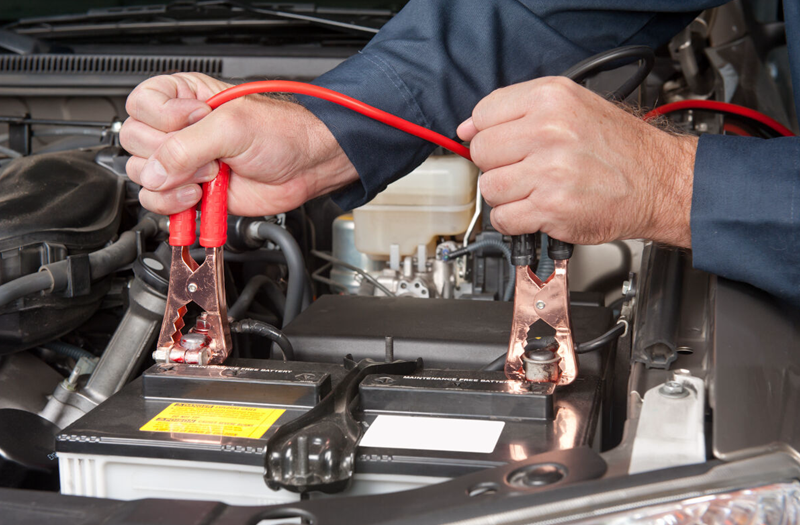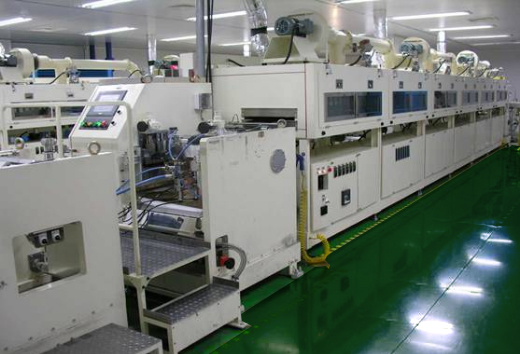Lithium Batteries in Series: Understanding the Pros and Cons of Connecting Them
Lithium batteries have become increasingly popular over the years due to their high energy density and long cycle life. They are now commonly used in various applications such as electric vehicles, portable electronics, and renewable energy systems. In some cases, it may be necessary to connect multiple lithium batteries in series to achieve the desired voltage level. However, there are certain pros and cons to consider when doing so. In this article, we will explore these aspects in detail.
Pros of Connecting Lithium Batteries in Series
1. Increased Voltage: One of the primary advantages of connecting lithium batteries in series is that it allows you to increase the voltage of the battery bank. The voltage of each individual battery is added together, resulting in a higher overall voltage. This can be particularly useful in applications that require a high voltage, such as electric vehicles or solar energy systems.
2. More Efficient Charging: When lithium batteries are connected in series, they can be charged more efficiently. This is because the charger can apply a higher voltage, which allows the batteries to charge faster. Additionally, when the batteries are fully charged, the charger can shut off automatically, preventing overcharging.
3. Reduced Wire Resistance: Another benefit of connecting lithium batteries in series is that it can reduce the wire resistance in the system. This is because the current is spread across multiple batteries, reducing the load on each individual battery. As a result, the voltage drop across the wires is minimized, improving the overall efficiency of the system.
Cons of Connecting Lithium Batteries in Series
1. Increased Risk of Overheating: One of the main drawbacks of connecting lithium batteries in series is that it can increase the risk of overheating. This is because each battery has its own charging and discharging characteristics, and if one battery is overcharged or over-discharged, it can cause thermal runaway in the entire system. This can lead to cell damage, fire, or even explosion.

2. Reduced Cycle Life: Another disadvantage of connecting lithium batteries in series is that it can reduce the cycle life of the batteries. This is because each battery will be subjected to a higher voltage, which can cause more stress and wear on the cells. Over time, this can lead to a reduced capacity and a shorter lifespan for the battery bank.
3. Limited Flexibility: When lithium batteries are connected in series, they must be of the same capacity and voltage rating. This can limit the flexibility of the system, as you cannot mix and match different types of batteries. Additionally, if one battery in the series fails, it can affect the entire system and require replacement of all the batteries.
خاتمة
In conclusion, connecting lithium batteries in series can offer several benefits, such as increasing the voltage and improving charging efficiency. However, it is important to also consider the drawbacks, including the increased risk of overheating, reduced cycle life, and limited flexibility. To ensure the safety and longevity of the battery bank, it is essential to carefully choose the batteries, monitor the charging and discharging process, and implement adequate safety measures.
-
 Industrial battery chargers play a crucial role in the functioning of various industries worldwide. These powerful devices are designed to charge and maintain the batteries that power essential equipment and machinery in sectors such as manufacturing, logistics, and transportation. Understanding the importance and capabilities of industrial battery chargers is essential for businesses to ensure uninterrupted operations and maximize productivity. ...اقرأ أكثر
Industrial battery chargers play a crucial role in the functioning of various industries worldwide. These powerful devices are designed to charge and maintain the batteries that power essential equipment and machinery in sectors such as manufacturing, logistics, and transportation. Understanding the importance and capabilities of industrial battery chargers is essential for businesses to ensure uninterrupted operations and maximize productivity. ...اقرأ أكثر -
 Lithium iron phosphate battery, as an important type of lithium-ion battery, has occupied a place in the field of energy storage since its birth due to its unique performance advantages. This article will thoroughly analyze the technical principles, structural characteristics and significant features of LFPB, but will not cover specific application areas and future prospects. Technical Principles and Structural Features...اقرأ أكثر
Lithium iron phosphate battery, as an important type of lithium-ion battery, has occupied a place in the field of energy storage since its birth due to its unique performance advantages. This article will thoroughly analyze the technical principles, structural characteristics and significant features of LFPB, but will not cover specific application areas and future prospects. Technical Principles and Structural Features...اقرأ أكثر -
 Electric vehicles have been gaining popularity around the world due to their sustainability and environmental benefits. In recent years, this trend has extended to the dirt bike industry, with the emergence of electric dirt bikes. These bikes are an exciting alternative to traditional gasoline-powered dirt bikes, offering numerous advantages. One of the key components that make electric dirt bikes superior...اقرأ أكثر
Electric vehicles have been gaining popularity around the world due to their sustainability and environmental benefits. In recent years, this trend has extended to the dirt bike industry, with the emergence of electric dirt bikes. These bikes are an exciting alternative to traditional gasoline-powered dirt bikes, offering numerous advantages. One of the key components that make electric dirt bikes superior...اقرأ أكثر -
 Introduction In recent years, with the growing demand for renewable energy sources and portable power solutions, the 12V 100Ah LiFePO4 battery has emerged as the ultimate power solution for various electrical needs. This technologically advanced battery offers several advantages over conventional options, making it an ideal choice for both residential and commercial applications. Unmatched Power and Efficiency ...اقرأ أكثر
Introduction In recent years, with the growing demand for renewable energy sources and portable power solutions, the 12V 100Ah LiFePO4 battery has emerged as the ultimate power solution for various electrical needs. This technologically advanced battery offers several advantages over conventional options, making it an ideal choice for both residential and commercial applications. Unmatched Power and Efficiency ...اقرأ أكثر -
 Introduction The world has witnessed a significant shift towards the use of advanced battery technology. This paradigm shift is commonly referred to as the Battery Industrial Revolution, which is transforming various industries and paving the way for a sustainable future. The advancements in battery technology have made it possible to power a wide range of applications, from electric vehicles...اقرأ أكثر
Introduction The world has witnessed a significant shift towards the use of advanced battery technology. This paradigm shift is commonly referred to as the Battery Industrial Revolution, which is transforming various industries and paving the way for a sustainable future. The advancements in battery technology have made it possible to power a wide range of applications, from electric vehicles...اقرأ أكثر -
 Introduction Power distribution systems have been an integral part of modern society, ensuring electricity is delivered reliably and efficiently to homes, businesses, and industries. However, with the increasing demand for electricity and the need to integrate renewable energy sources, traditional power distribution systems are facing significant challenges. To address these challenges, smart grids and lithium battery technology have emerged...اقرأ أكثر
Introduction Power distribution systems have been an integral part of modern society, ensuring electricity is delivered reliably and efficiently to homes, businesses, and industries. However, with the increasing demand for electricity and the need to integrate renewable energy sources, traditional power distribution systems are facing significant challenges. To address these challenges, smart grids and lithium battery technology have emerged...اقرأ أكثر -
 As the world continues to search for sustainable and renewable sources of energy, the need for efficient and reliable energy storage solutions has become increasingly important. One such solution is the 12V 100Ah LiFePO4 battery pack, which offers a number of benefits over traditional lead-acid batteries. LiFePO4 (Lithium Iron Phosphate) batteries have a number of advantages over other types...اقرأ أكثر
As the world continues to search for sustainable and renewable sources of energy, the need for efficient and reliable energy storage solutions has become increasingly important. One such solution is the 12V 100Ah LiFePO4 battery pack, which offers a number of benefits over traditional lead-acid batteries. LiFePO4 (Lithium Iron Phosphate) batteries have a number of advantages over other types...اقرأ أكثر

